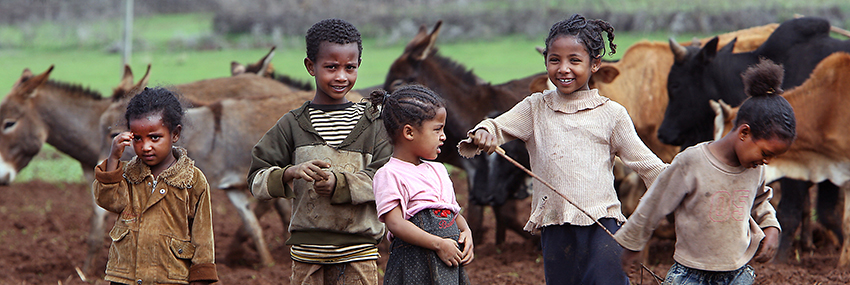
Overview
The Challenge
The world population has surpassed seven billion and is expected to grow and stabilize at around nine billion people by the year 2050. Trying to meet the rising demand for food, feed, and energy with current technology and agricultural resources is a formidable task. Our farms will have to produce more, on less land, and with more judicious use of inputs, requiring new science, technology, and innovations. Looking forward, the growing challenges of a looming water crisis, increasing energy demand, loss of biodiversity, and likely climate change will put additional strains on the global food production system. These factors, along with a wide-range of socio-economic issues, including how to develop better strategies to make food accessible and affordable to those that need it, form an interacting mix of grand challenges that underscores the complex nature of the global food security agenda in the 21st century. Despite the widespread recognition of the concern that our global food production system faces fundamental and critical challenges, the full scope of the interactions and consequences are not yet known. We also do not yet possess, in our current knowledge system, the data, tools, and skill-sets to address the emerging global challenges in our food and natural resource systems in a way that maximizes their economic, social and ecological value.
Our Purpose
The Purdue Center for Global Food Security (PCGFS) is taking up these challenges, helping to ensure that we have enough food, feed and fuel for the 21st century and beyond. The Center is gearing to mobilize and focus the talent pool of its faculty and partners on the evolving challenges arising from the interactions among agricultural production and food systems with climate change, energy demand and supply, policy responses, population growth and the associated development pressures. With a more comprehensive, transdisciplinary, and holistic approach to our educational and research programs, we hope to develop the strategies and tools we need to address the causes and consequences of food insecurity. A new generation of global leaders and new scientific solutions are needed to sustainably increase agricultural productivity, to reduce hunger and poverty, and to ensure peace and stability.
Our Goals
Provide Global Leadership
The Center works to expand the community of individuals who are invested in advancing the cause of global food security through a revitalized agricultural research program to build relationships grounded in mutual trust and common goals, and connect knowledge to action.
Create Global Public Good
We promote an integrated research agenda that is flexible and evolving, interconnecting with new discoveries, emerging priorities, and the creative insights and collaborative interests of our faculty, students, and partners to generate new knowledge, products, and services.
Build Human and Institutional Capacity
Building on the long history of Purdue University in global engagement in agriculture, engineering, the arts, and sciences, the Center will continue this tradition and support human capacity building and institutional strengthening of programs. We will encourage and enable effective communication and access of creative science, technology, and innovation to advance the cause of purpose-driven research for the global community.
Strengthen and Grow Partnerships
Our goal of advancing an integrative systems-approach to addressing the growing challenges of global food security relies on a global learning community that shares the task of designing solutions for addressing problems. We hope to bring together the best of the vision and science that resides at our university with those at partner organizations for more effective synergy.
Develop Entrepreneurial Capacity
Purdue's Discovery Park is changing how a 21st century university translates research into viable commercial products. PCGFS plans to directly engage our researchers and partners in practical entrepreneurship to transform innovations arising from our joint efforts into commercial enterprises.
